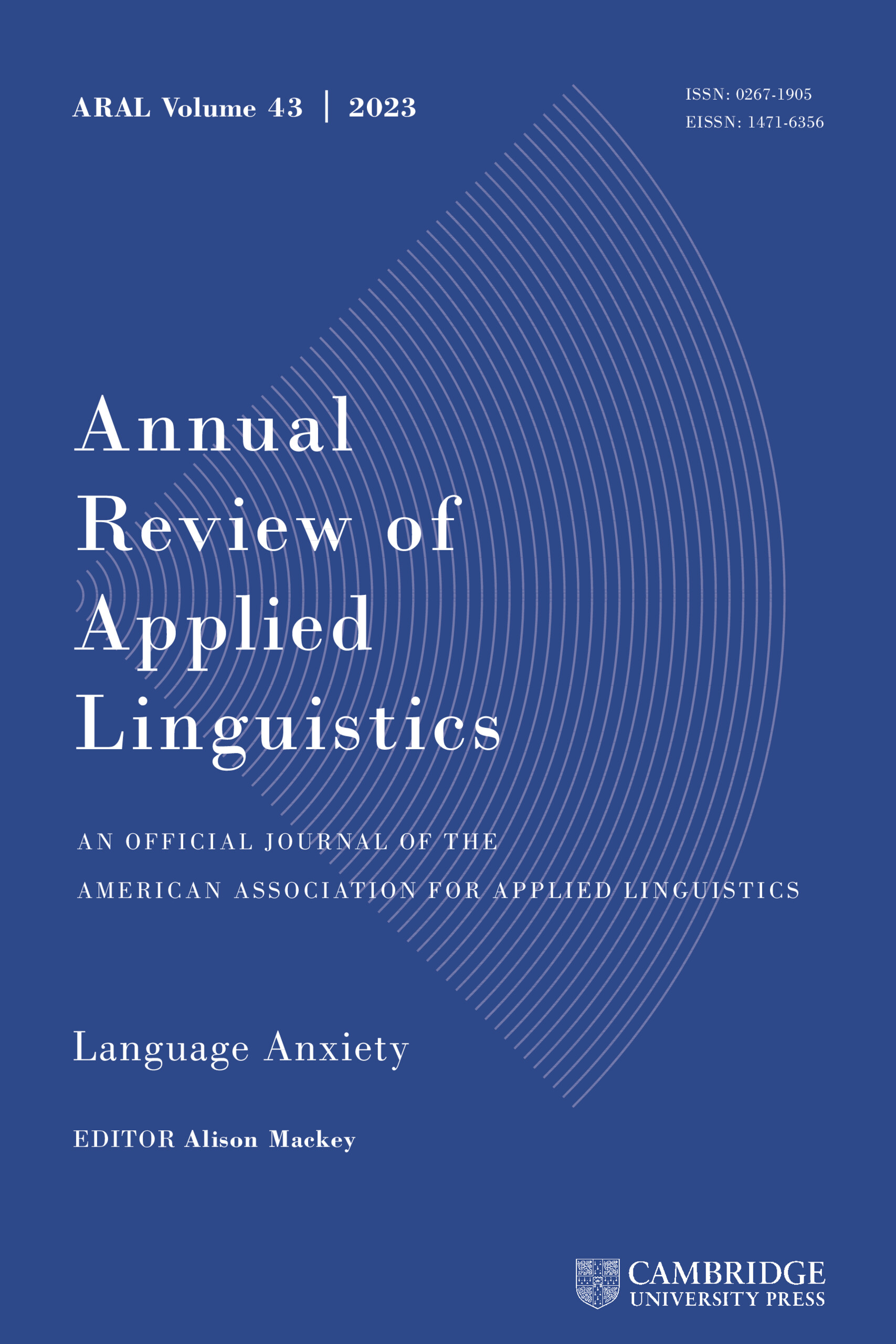Crossref Citations
This article has been cited by the following publications. This list is generated based on data provided by
Crossref.
Kubota, Ryuko
2004.
The Politics of Cultural Difference in Second Language Education.
Critical Inquiry in Language Studies,
Vol. 1,
Issue. 1,
p.
21.
Kecskes, Istvan
Davidson, Dan E.
and
Brecht, Richard
2005.
The foreign language perspective.
Intercultural Pragmatics,
Vol. 2,
Issue. 4,
Boxer, D.
2006.
Encyclopedia of Language & Linguistics.
p.
677.
Cenoz, Jasone
2007.
Intercultural Language Use and Language Learning.
p.
123.
Holmes, Janet
2007.
Monitoring organisational boundaries: Diverse discourse strategies used in gatekeeping.
Journal of Pragmatics,
Vol. 39,
Issue. 11,
p.
1993.
Kasanga, Luanga A
and
Lwanga-Lumu, Joy-Christine
2007.
Cross-cultural linguistic realization of politeness: A study of apologies in English and Setswana.
Journal of Politeness Research. Language, Behaviour, Culture,
Vol. 3,
Issue. 1,
Taguchi, Naoko
2008.
THE ROLE OF LEARNING ENVIRONMENT IN THE DEVELOPMENT OF PRAGMATIC COMPREHENSION.
Studies in Second Language Acquisition,
Vol. 30,
Issue. 4,
p.
423.
Boxer, Diana
2008.
Encyclopedia of Language and Education.
p.
1047.
Csizer, K.
and
Kormos, J.
2009.
Modelling the Role of Inter-Cultural Contact in the Motivation of Learning English as a Foreign Language.
Applied Linguistics,
Vol. 30,
Issue. 2,
p.
166.
Holmes, Janet
and
Riddiford, Nicky
2010.
Professional and personal identity at work: achieving a synthesis through intercultural workplace talk.
Journal of Intercultural Communication,
Vol. 10,
Issue. 1,
p.
1.
Ishihara, Noriko
2010.
Instructional Pragmatics: Bridging Teaching, Research, and Teacher Education.
Language and Linguistics Compass,
Vol. 4,
Issue. 10,
p.
938.
Boxer, Diana
2010.
Directions and Prospects for Educational Linguistics.
Vol. 11,
Issue. ,
p.
49.
Roziņa, Gunta
2011.
Cross-Cultural Pragmatics of Interactional Competence.
Baltic Journal of English Language, Literature and Culture,
Vol. 1,
Issue. ,
p.
53.
Shahrokhi, Mohsen
and
Jan, Jariah Mohd
2012.
The Realization of Apology Strategies Among Persian Males.
Procedia - Social and Behavioral Sciences,
Vol. 46,
Issue. ,
p.
692.
Liang, Mei-Ya
2012.
Reimagining Communicative Context: ELF Interaction in Second Life to Learn EFL.
Journal of Language, Identity & Education,
Vol. 11,
Issue. 1,
p.
16.
Holmes, Janet
2012.
The Handbook of Intercultural Discourse and Communication.
p.
205.
Padilla Cruz, Manuel
2014.
Pragmatic failure, epistemic injustice and epistemic vigilance.
Language & Communication,
Vol. 39,
Issue. ,
p.
34.
Walkinshaw, Ian
and
Oanh, Duongthi Hoang
2014.
Native and Non-Native English Language Teachers.
Sage Open,
Vol. 4,
Issue. 2,
Hu, Zhen
2014.
Study on Developing Chinese College EFL Learners’ Pragmatic Competence in Relation to Language Proficiency and Overseas Experience.
Journal of Language Teaching and Research,
Vol. 5,
Issue. 2,
Liyanage, Indika
Walker, Tony
Bartlett, Brendan
and
Guo, Xuhong
2015.
Accommodating taboo language in English language teaching: issues of appropriacy and authenticity.
Language, Culture and Curriculum,
Vol. 28,
Issue. 2,
p.
113.

